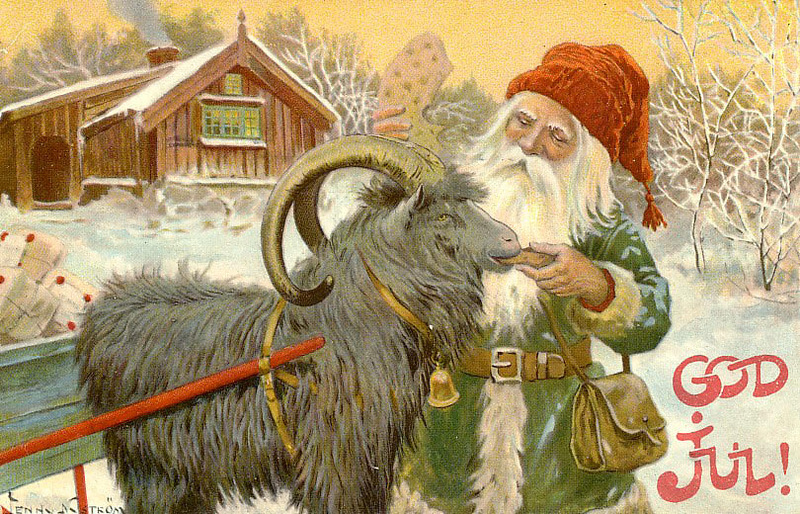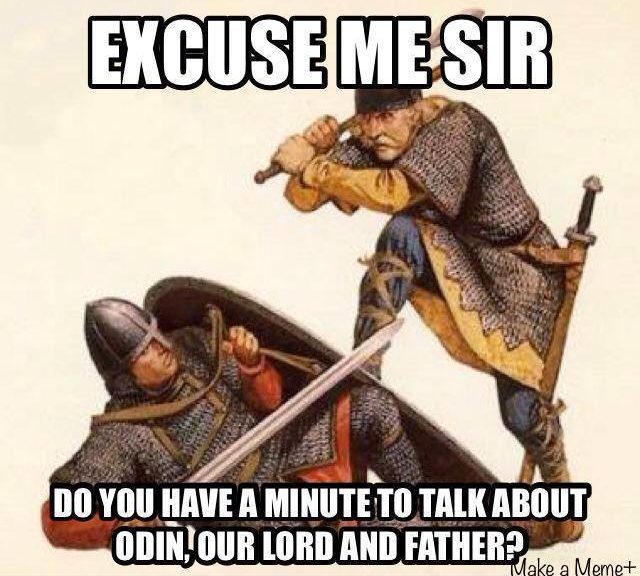Going Atheist: When Belief in the Gods Fails
I decided to write this piece about when belief in the gods fails because Tyson Chase, a fellow blogger has gone from pagan to atheist. It’s a shame, because I enjoyed reading his posts, but I understand where he is coming from.

I read a number of blogs from pagan and atheist authors off Patheos, (and if I want to get pissed off, I read the Christian blogs, too), but it always intrigued me that someone living in the heart of Mormon country would be pagan. I found it daring, to say the least. But his belief in the gods failed because it’s tough to reconcile gods and magic with science. So, he has become an agnostic atheist.
Writng as a Former Agnostic Atheist

It’s kind of funny that I had the exact opposite experience. I went from Catholic to Agnostic (with heavy emphasis on Atheist) to Heathen. The gods had to figuratively whack me upside the head to get my attention, but they did get my attention. I had to accept that there were gods, and that their existence coincided with the science I knew and understood. Not gods of the gaps, but actual gods who existed in a pantheistic way, and who could take forms.
Not everyone will have that kind of experience. In fact, some people will claim I am delusional. So be it. I make no apologies for it. If you’re one of those who believes this, you are not my audience, and I recommend that you simply move along and don’t waste your time.
Sometimes I’m still agnostic, especially when it comes to things like magic and wights. I’ve had some odd encounters that I can’t rationally explain without jumping through a bunch of hoops to make reality fit the model, so I’ll just claim I’m agnostic and let it go at that.
But when asking for an obvious sign and getting one? Well, that’s where the gods have stepped in and slapped me upside the head. Hel, they even spelled out their names.
When You’re Tempted to go Atheist
 I’m not one to tell you to not go atheist. I can only tell you my own experience. I’ve known Heathens who were basically atheist who just liked keeping the Heathen ways alive. Like the people in our society who don’t really believe in the Christian god, but still celebrate Christmas, they like the holiday and the practices, but don’t believe the gods exist. That’s fine. Our gods don’t require our belief.
I’m not one to tell you to not go atheist. I can only tell you my own experience. I’ve known Heathens who were basically atheist who just liked keeping the Heathen ways alive. Like the people in our society who don’t really believe in the Christian god, but still celebrate Christmas, they like the holiday and the practices, but don’t believe the gods exist. That’s fine. Our gods don’t require our belief.
 The Heathen (and also many other pagan) gods aren’t easily measurable. They aren’t part of the physical world, (but they do have the ability to take on physical forms.) They don’t insist that people worship them, although they show up to those they want to work for them in this world.
The Heathen (and also many other pagan) gods aren’t easily measurable. They aren’t part of the physical world, (but they do have the ability to take on physical forms.) They don’t insist that people worship them, although they show up to those they want to work for them in this world.
Yeah, I don’t think I’m so important to Tyr that he couldn’t get anyone else to do what I do, but he and Thor chose me for some damn reason. An atheist-leaning agnostic, at that. Go figure.
What About Science?
 Paganism/Heathenism and science aren’t mutually exclusive. Scientists discover new things about our world all the time. Some of their discoveries and theories strengthen our beliefs as Heathens. Some of the information discounts what we believed in the past. That’s okay, really. If we cannot change with the new discoveries and facts, then our religion has no relevance to our current society. This is why Christianity is having such a tough time keeping and attracting new followers. Most Christian denominations fail to change with society, and thus become irrelevant to most people.
Paganism/Heathenism and science aren’t mutually exclusive. Scientists discover new things about our world all the time. Some of their discoveries and theories strengthen our beliefs as Heathens. Some of the information discounts what we believed in the past. That’s okay, really. If we cannot change with the new discoveries and facts, then our religion has no relevance to our current society. This is why Christianity is having such a tough time keeping and attracting new followers. Most Christian denominations fail to change with society, and thus become irrelevant to most people.
 Look at their bible. Many still believe that the world was made in six days. They believe that man sinned from eating from the tree of knowledge, and that sin stays with everyone until they are baptised. Furthermore, if you don’t believe the bible and in Jesus, you get punished for eternity.
Look at their bible. Many still believe that the world was made in six days. They believe that man sinned from eating from the tree of knowledge, and that sin stays with everyone until they are baptised. Furthermore, if you don’t believe the bible and in Jesus, you get punished for eternity.
Heathens don’t believe that. In fact we look at our books as inspirational texts and more like guidelines than actual rules. We accept science and look at it as one more key to understanding our universe.
As Heathens, we know our books were written by people from an oral tradition. No matter how hard you try to get the information right, like the game of telephone or operator, the stories are going to change from one generation to the next. Add multiple generations and a change to Christianity, and the stories not only become Christianized but also very different from the original story. And be aware that the original story was told through the viewpoint of a Heathen who lived over a thousand years ago.
So, What to Do if You Lose Faith in the Gods
 First, understand that Heathenism and science (or paganism and science) are not mutually exclusive. In fact, the two complement each other. You can read about quantum theory and still believe in Odin. You can look up at the night’s sky and feel Tyr beside you. You can understand the mechanism behind weather and still hear Thor’s voice in the thunder. Science does not negate this.
First, understand that Heathenism and science (or paganism and science) are not mutually exclusive. In fact, the two complement each other. You can read about quantum theory and still believe in Odin. You can look up at the night’s sky and feel Tyr beside you. You can understand the mechanism behind weather and still hear Thor’s voice in the thunder. Science does not negate this.
But let’s say you’ve been Heathen a while and never heard a god. Never seen a wight. Never felt anything close to divine. Okay, so you haven’t. So what? Lots of people don’t hear from the gods. And the gods are not your bitches. That means you can’t summon them up like a lab experiment.
Maybe you’re looking for proof and are disheartened that the gods don’t speak to you. Look, the gods sometimes speak to me. Not always. Even when I’m searching for an answer, sometimes all I get are crickets. Be patient. Wait and see. Use your runes and talk to others who are Heathens for their opinions.
If this truly bothers you, then perhaps you’re not in the right form of paganism, or maybe not in the right religion at all. Maybe you should be an atheist or agnostic. But, I would encourage you to be open to the gods, even if you decide Heathenism isn’t for you. You never know when one of the gods will look you up. Or bitch-slap you upside the head like they did with me.
The Point to All This
I suppose the point to this rambling post is that if you really want to leave paganism/Heathenism, no one will stop you. Sure, we’ll be sad to see you go, but everyone must follow their own path. Just as Tyson Chase must follow his own path. I enjoyed Tyson’s posts, and maybe he might pick up blogging on the nonreligious channel, but I kind of doubt it by the finality of his tone. Still, the pagan/Heathen door is always open for those who wish to honor our gods. I wish you good luck, Tyson, and I look forward to whatever you choose to write in the future.



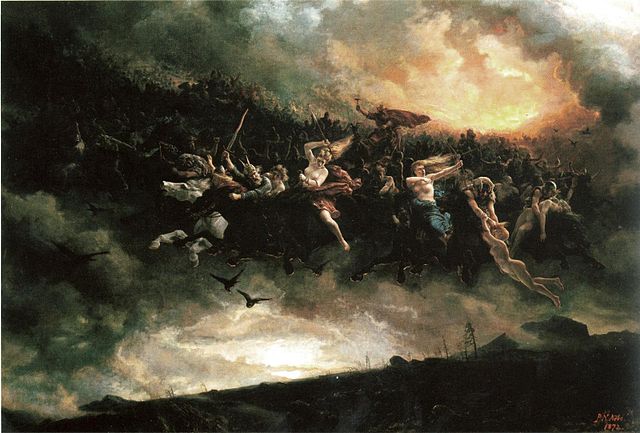 Moon and the Sun move across our sky, rather than the Earth revolving around the Sun and the Moon revolving around the Earth. That there really was a cow that licked the brine from Ymir and the gods, thus creating the first pantheons. That Odin along with his brothers slew Ymir and fashioned our Earth from Ymir’s bones. This is more fundamentalist than anything, and again, since you really believe that, nothing I’m going to tell you is going to make a difference.
Moon and the Sun move across our sky, rather than the Earth revolving around the Sun and the Moon revolving around the Earth. That there really was a cow that licked the brine from Ymir and the gods, thus creating the first pantheons. That Odin along with his brothers slew Ymir and fashioned our Earth from Ymir’s bones. This is more fundamentalist than anything, and again, since you really believe that, nothing I’m going to tell you is going to make a difference. Now, if you believe our gods manifest themselves in physical forms, that’s fine. I’m good with that. I believe that they can and do, but I also don’t believe that Asgard exists in our dimension. I tend to
Now, if you believe our gods manifest themselves in physical forms, that’s fine. I’m good with that. I believe that they can and do, but I also don’t believe that Asgard exists in our dimension. I tend to 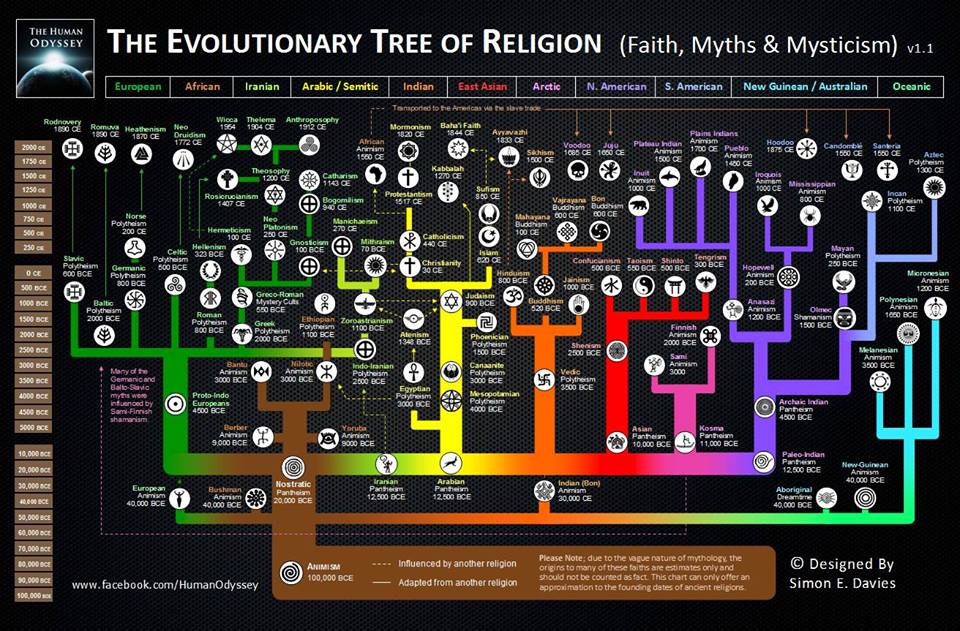
 Soft polytheism tends to look more at the concepts of the gods as archetypes. In it’s extreme form, it’s closer to atheism than a religion. I would not consider most soft polytheists in that group. Many are pantheists, which allows the worship of other gods, and it equates the universe with the gods. I sit more comfortably in the pantheistic version of Heathenry, because I believe that the universe and the gods are the same. My belief is our gods go by other names in other religions. I chose our gods not only because I am most comfortable with them, but because I have had interactions with them by those names.
Soft polytheism tends to look more at the concepts of the gods as archetypes. In it’s extreme form, it’s closer to atheism than a religion. I would not consider most soft polytheists in that group. Many are pantheists, which allows the worship of other gods, and it equates the universe with the gods. I sit more comfortably in the pantheistic version of Heathenry, because I believe that the universe and the gods are the same. My belief is our gods go by other names in other religions. I chose our gods not only because I am most comfortable with them, but because I have had interactions with them by those names.
 Today I’m throwing mud at another pagan religion, which probably will put me on their curse list. So be it. I don’t believe in that shit anyway, so cursing me won’t work.
Today I’m throwing mud at another pagan religion, which probably will put me on their curse list. So be it. I don’t believe in that shit anyway, so cursing me won’t work. Does anyone see a problem with this? One
Does anyone see a problem with this? One 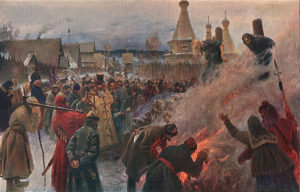 derivative not from pagan belief, but from a monotheistic belief. The exact monotheistic belief pagans are purportedly not believing in. It’s like saying, “I don’t believe in your god, but hey, we’re going to take the trappings and lore from your religion and use it however the hell it suits us.”
derivative not from pagan belief, but from a monotheistic belief. The exact monotheistic belief pagans are purportedly not believing in. It’s like saying, “I don’t believe in your god, but hey, we’re going to take the trappings and lore from your religion and use it however the hell it suits us.” I don’t believe in the Jewish and Christian god. I think it is a construct that came from one sect of the Canaanites that eventually became Jewish. They put their patron god Yahweh above all the other gods and came up with monotheism.
I don’t believe in the Jewish and Christian god. I think it is a construct that came from one sect of the Canaanites that eventually became Jewish. They put their patron god Yahweh above all the other gods and came up with monotheism. Zoroastrian, but honestly, aren’t you being a little narrow in your world views? I’ve heard that there were somewhere around 5000 different religions. Instead, you’re mixing Christianity, Zoroastrian, and Roman religions to come up with something you like?
Zoroastrian, but honestly, aren’t you being a little narrow in your world views? I’ve heard that there were somewhere around 5000 different religions. Instead, you’re mixing Christianity, Zoroastrian, and Roman religions to come up with something you like?